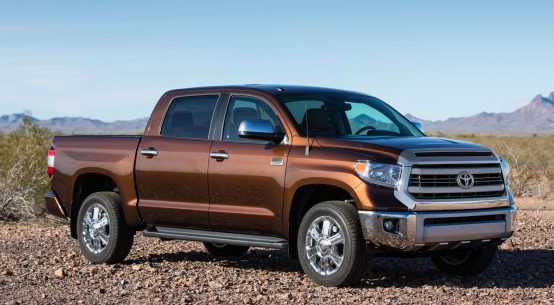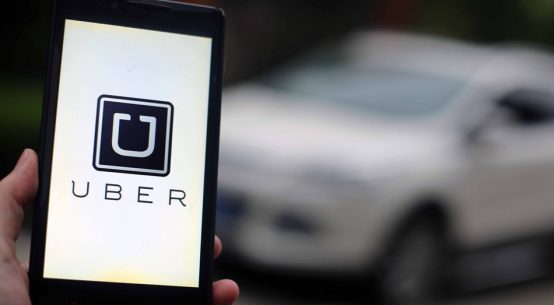
There are different views from auto analysts that Nigeria would benefit a lot from the ban of petrol/diesel -powered vehicles in Europe and other countries by 2030 as the date applies to each country.
Britain In July announced that it would halt the production of petrol and diesel automobiles from 2040 as part of a major push to meet its climate change target. This was after France said it planned to ban the fossil-fuel cars by 2040, in a drive to electric vehicles.
The Scottish government on Tuesday said it would phase out petrol and diesel cars and vans by 2032, eight years ahead of the UK’s target, while India had earlier announced that every vehicle sold in the country should be powered by electricity by 2030. While Norway, Germany and The Netherlands are among 1o other countries that have set sales targets for electric cars and to completely ditch petrol and diesel vehicles in favour of cleaner vehicles.
Amidst all these global bannings of Petrol/diesel Cars, Some Analysts are of the opinion that Nigerians would benefit more from the ban, as cars would be available at a cheaper price, affordable spare parts reduced maintenance cost. However, the Nigerian Automotive Design and Development Council Lagos Chamber of Commerce and Industry and PricewaterhouseCoopers Limited feels that Nigeria still have to embrace electric Vehicles(EV) which will take more three decades to achieve as the nation is still struggling to generate sufficient electricity for both home and industrial use.
With the probable crash in prices of new vehicles, they said this should provide an opportunity for many people to own new cars and others to replace their unserviceable jalopies. The expected boom in the auto industry, they said, would also translate into job opportunities for a huge number of people as well as boost the nation’s industrial sector.
Deputy Managing Director of CFAO Motors Nigeria, Mr. Kunle Jaiyesimi, which recently transformed into Massilia Motors Limited, said the ban would provide the required tonic to revive Nigeria’s auto industry and make it flourish again.
That with the effective date (for the ban on petrol-diesel vehicles) approaching, many auto manufacturers will like to rush out their old stock and push them to willing buyers. which will, in turn, be an opportunity for Nigeria to buy new vehicles at cheaper prices. With the increase in Import duty on new vehicles from 22 percent to 7- percent the purchasing power of the people has been very low, which largely accounts for the drastic drop in the demand for new vehicles. In his statement “When we started the year, the demand increased and it peaked between March and April; but it dropped in the last quarter.”
Dr. Oscar Odiboh, a university lecturer and consultant on the automobile to a number of firms, also felt the development should provide an opportunity for the government to improve the auto sector.
He said, “The automakers will be willing to dispose of their old stock at giveaway prices. I, therefore, see an opportunity here for the government and the people in the auto industry to make more money. Even after the nation has switched over to electric cars, diesel and petrol vehicles will still be used just like now where we have manual transmission automobiles being used side-by-side with automatic.
“So, I’ll urge us to make hay while the sun shines and this sun is not going to shine forever. We can also refocus our refineries to get prepared to produce for the influx of vehicles anticipated to come into the Nigerian market. This can remove the fears that the demand for our crude would drop drastically. The local market should be able to take care of the excess production. “Let us take advantage of this. All government agencies concerned with this should be meeting now and mapping out strategies to achieve this.”
The Nigerian auto industry has been dominated by imported used cars, four years after the introduction of a new auto policy and stressed the need to close the gap.
With the recent announcement by the NADDC that the country assembled 10,673 vehicles between January and December last year, Nigeria still heavily relies on imported (fully built) vehicles to cater for the huge automobile demand.
Even though the Federal Government raised the import duty from 22 per cent to 70 per cent; and slashed the duty on auto components imported by vehicle assembly plants to zero per cent with the motive to encourage local production of automobiles, reduce capital flight, boost industrialisation and create employment opportunities for the people. And no fewer than 53 firms have thus been approved to set up auto assembly plants in the country, many of which have commenced operation.
About 550,000 automobiles are said to be imported annually, with 500,000 of them coming in as used or tokunbo vehicles, representing about 90.1 per cent; and only 50,000 units are brought into the country as new, which is 9.09 per cent of the total vehicle imports.
Advising Nigerians to “It is always good for Nigeria to key into the vision of the whole world, especially regarding the issue of environmental protection. Driving vehicles powered by fossil fuel at a time when they are being removed from Europe and other advanced economies will put us at odds with the vision of the whole world which is to preserve the environment. He added that this would increase the nation’s dependence on vehicles not environmentally friendly at a time when the whole world would be trying to phase them out because they were damaging the environment.
But some analysts are of the view that new car buyers may be disappointed if they expect prices of new vehicles to drop drastically in the wake of the ban on fossil-fuel vehicles by some European countries and others.
Two experts who uphold this view are the Executive Director, Trackmasters Nigeria Limited, Dr. Oseme Oigiagbe, and the Managing Editor of ‘Transport Day’, Mr. Frank Kintum.
Oigiagbe, a former Chairman, Automotive Group of the LCCI, said that the prices of such vehicles would only be determined by the exchange rate, adding that as long as the importers still had problems sourcing for foreign exchange, it will be a mirage to expect prices to fall. According to him, if the exchange rate remains N370 to a dollar, the prices of cars will still be high.
Kintum explained that since the change was going to be from combustion engine to electric, leaving other vehicle components unchanged, this might not translate into any significant difference in terms of cost of vehicles locally.
The auto consultant also said, “Since the chassis, shell, tyre and transmission of the vehicle will still be the same, I don’t foresee so much difference in prices.” He also said the development would not adversely affect the local assembly plants who were still struggling to get buyers for their products.
They (local auto assemblers) don’t do engines. They import parts and assemble them. The technology will still be the same,” Kintum said.
The nation is also expected to gain tremendously from the expected flourishing auto spare parts market that will follow the ban on combustion engine vehicles, as attested to by Jaiyesimi, Odiboh and other experts.
The Director-General, NADDC, Mr. Jelani Aliyu, said while the local auto players should be mindful of the happenings globally in the automotive industry, they should look “at new technologies that can be adapted for Nigeria, with the ultimate goal of providing cost-effective vehicles for the people.” He pledged that the current administration was willing to give the necessary support to make it a win-win situation for both the government and genuine investors.
Nigerians on the hand also want to be at par with other countries and not left behind. An Indigenous auto firm Nigus Enfinity is already thinking of doing electric cars hinting that it would introduce electric vehicles in 2018 and establish the EV assembly plant in 2020.







